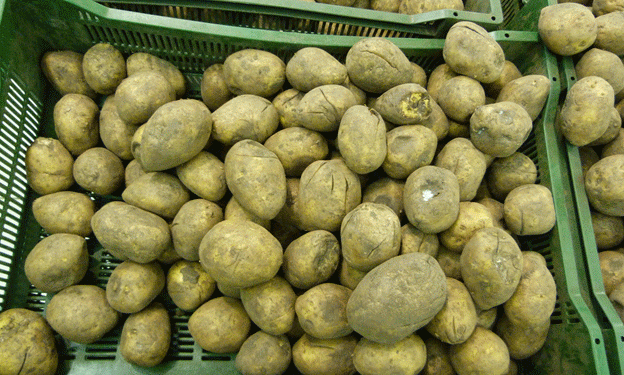In recent weeks, numerous residents in Krasnoyarsk have reported dissatisfaction with the quality of potatoes available in stores. The complaints mainly center around the potatoes’ tendency to rot quickly, with some potatoes reportedly already in poor condition upon purchase. Retailers and suppliers are also facing difficulties in stocking quality potatoes, leading to sporadic supply issues. But what exactly has led to these problems, and how are they impacting the agricultural sector in Krasnoyarsk?
The Impact of Weather on Potato Quality
Agronomists and farmers point to the unusually heavy rainfall in late August as the main reason for the potato quality decline. Excess rain during the critical harvest period caused potatoes to absorb too much moisture, making them vulnerable to rot. A farmer in Berezovsky District reported that despite her efforts to harvest on time, the potatoes were waterlogged, resulting in produce that remained soggy and unappetizing even after prolonged cooking. The early onset of cold nights further complicates the drying process, making it difficult for farmers to ensure quality storage.
Across Russia, rainfall this harvest season was abnormally high, leading to an overall decline in the quality of potatoes. According to Rosstat, Russia’s agricultural statistics agency, areas that experienced excessive rainfall this year reported yield losses of up to 15%. Krasnoyarsk, which relies heavily on local produce, has felt the brunt of this issue acutely, with suppliers and retailers struggling to maintain a stable supply of high-quality potatoes.
Supply Chain Strain and Price Adjustments
The effects of poor potato quality extend beyond the fields and into the retail sector. Retailers report having to discount or quickly sell off potatoes to prevent spoilage. For example, some wholesale suppliers have dropped prices to as low as 10 rubles per kilogram to clear stocks of rapidly deteriorating produce. Meanwhile, smaller retailers are hesitant to raise prices, fearing a drop in consumer demand. “If we increase prices, customers may stop buying altogether,” says a vegetable shop owner in Krasnoyarsk’s local market.
Large grocery chains, such as “Komandor” and “Krasny Yar,” have confirmed temporary supply shortages. Komandor’s communications director noted that weather-related harvest delays contributed to these gaps, though they expect supply to stabilize by late September if the weather improves. However, as of early autumn, these chains are still uncertain about whether Krasnoyarsk farmers will complete the harvest due to anticipated night frosts, which could further hinder the digging of any remaining crop.
Effects on Regional Agricultural Practices
This situation highlights a significant challenge for regional agriculture, particularly with potato storage and harvest scheduling. Potato experts advise farmers to adopt improved drainage systems to help minimize water saturation in the event of heavy rains. Krasnoyarsk agricultural advisors are recommending additional investments in weather-resistant potato varieties and adaptive farming practices to help withstand the increasingly unpredictable climate.
This year’s potato harvest in Krasnoyarsk has underscored the vulnerability of traditional farming practices to shifting weather patterns. With potatoes rotting quickly due to rain saturation, both farmers and retailers are facing financial pressures. However, adaptive measures, such as enhanced drainage and resistant potato varieties, could reduce the risks of similar situations in the future. Krasnoyarsk’s farmers are hopeful that with timely interventions and improved weather, future potato harvests can yield better results and ensure consistent supply to local consumers.







